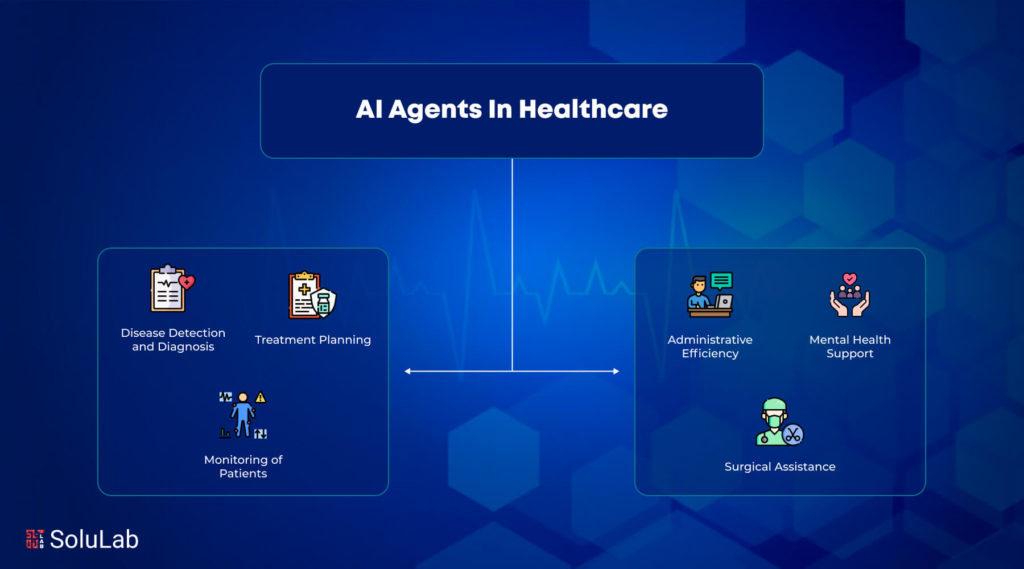Why More Retirees Are Relying on a Senior Insurance Agent for Long-Term Healthcare Decisions
Why More Retirees Are Relying on a Senior Insurance Agent for Long-Term Healthcare Decisions
Blog Article
Exactly How Insurance Functions for Elders: Key Insights Into Medicare and Insurance Coverage Options
Recognizing insurance coverage for elders, specifically Medicare, is essential for efficient medical care monitoring. Medicare offers important protection, however its intricacies can be frustrating. Senior citizens need to browse different parts, such as Components A, B, and D, along with options like Medicare Advantage and Medigap plans. Each option influences their monetary obligations and access to solutions. Unboxing these aspects reveals considerable understandings that can influence their medical care choices. What are the vital elements elders should think about?
Recognizing Medicare: An Introduction

Medicare Components A and B: What They Cover
Medicare Parts A and B offer necessary coverage for senior citizens, attending to both health center and clinical solutions. Part A focuses on healthcare facility insurance coverage, covering inpatient stays and certain outpatient solutions. Meanwhile, Component B uses coverage for a variety of medical solutions, consisting of physician brows through and preventative treatment.
Health Center Insurance Coverage Insurance Coverage
How do elders browse the intricacies of health center insurance policy protection? Medicare Component An offers important healthcare facility insurance policy, covering inpatient remains, proficient nursing facility care, hospice services, and some home healthcare. This protection is important for seniors, as it aids handle the costs linked with hospital stays and recovery.Medicare Component B, on the other hand, enhances Component A by covering outpatient solutions, including physician check outs, precautionary care, and diagnostic examinations. With each other, these two components create a detailed safety and security web for senior citizens, ensuring they have accessibility to required medical treatment. Understanding the distinctions in between Parts A and B allows seniors to make enlightened choices regarding their medical care needs and financial obligations related to healthcare facility solutions.
Medical Services Protection
While traversing the intricacies of clinical services protection, seniors gain from recognizing the specific offerings of Medicare Components A and B. Medicare Component A primarily covers inpatient health center stays, experienced nursing facility treatment, hospice treatment, and some home healthcare services. On the other hand, Medicare Part B focuses on outpatient solutions, including doctor sees, preventative care, diagnostic examinations, and sturdy clinical equipment. In Addition, Component B covers certain mental health services and outpatient rehabilitation. With each other, these components supply a comprehensive framework for taking care of medical care requirements. Seniors should acquaint themselves with the subtleties of these protection options to assure they maximize their advantages and minimize out-of-pocket expenses, eventually improving their accessibility to vital medical services.
Medicare Benefit Plans: An Alternate Strategy
A growing variety of senior citizens are checking out Medicare Advantage Program as a sensible choice to standard Medicare. These strategies, also recognized as Medicare Part C, are supplied by personal insurance business and incorporate all benefits of Medicare Parts A and B, usually consisting of added solutions such as vision, dental, and wellness programs. Many seniors value the streamlined technique, as these strategies usually supply a single plan that covers numerous health care needs.Medicare Benefit Plans can offer an affordable option, with some strategies also featuring low or no month-to-month premiums. Nevertheless, it is vital for elders to evaluate the network of health centers and doctors connected with each plan, as well as any kind of extra out-of-pocket expenditures that may occur. Eventually, picking a Medicare Benefit Strategy requires careful factor to consider of individual health requirements and monetary scenarios, making sure elders choose the option that ideal fits their way of living and healthcare needs.
Prescription Drug Protection: Medicare Component D
Medicare Part D provides essential prescription drug coverage for elders, assisting to manage the prices of required drugs. Understanding the enrollment duration is crucial for recipients to optimize their benefits and prevent fines. Additionally, expense considerations play a significant role in selecting the right plan to fit private health and wellness demands and monetary circumstances.
Insurance Coverage Essential Explained
Prescription drug protection is a vital part of healthcare for elders, ensuring access to needed medications. Medicare Part D offers a range of strategies developed to assist cover prescription drug costs. These plans are provided by exclusive insurance provider approved by Medicare and can vary widely relative to premiums, deductibles, and covered drugs. Recipients normally pay a monthly premium, in addition to copayments or coinsurance for every prescription. It is very important for seniors to assess their choices annually, as formularies and costs might change. Some individuals may likewise get Extra Aid, a program that aids with out-of-pocket costs. Inevitably, understanding these basics allows seniors to make informed choices concerning their prescription drug insurance coverage.
Registration Period Details
Comprehending the different enrollment periods for Medicare Component D is vital for seniors seeking to secure their prescription medicine insurance coverage. The First Enrollment Period (IEP) lasts 7 months, starting 3 months before a specific turns 65 and finishing 3 months after. During this moment, seniors can enroll in a Component D strategy scot-free. The Yearly Registration Duration (AEP) ranges from October 15 to December 7 yearly, permitting recipients to make modifications to their existing plans or enroll in a brand-new one. In addition, senior citizens might get approved for a Special Enrollment Duration (SEP) due to particular situations, such as relocating or shedding other coverage. Recognition of these timeframes is crucial for making sure appropriate prescription medication protection.
Expense Factors To Consider Introduction
While steering via the intricacies of medical care prices, seniors must consider the economic facets of Medicare Component D, which gives necessary prescription medicine insurance coverage. This program entails various costs, consisting of monthly premiums, annual deductibles, and copayments for medications. Premiums can differ significantly based on the selected strategy and revenue level. In addition, beneficiaries might run into a coverage space, commonly referred to as the "donut hole," where out-of-pocket costs enhance until reaching a particular investing threshold. Comprehending these expense structures is crucial for seniors to successfully handle their health care spending plans. It is advisable for seniors to review their prescription needs each year, as medicines and strategy options may transform, influencing total expenditures and insurance coverage competence.
Medigap Plans: Supplementing Your Medicare Insurance Coverage

Medicaid: Additional Support for Low-Income Seniors
For seniors encountering economic difficulties, Medicaid serves as a vital safety net, giving important health care protection and support. This program, carried out collectively by government and state federal governments, specifically targets low-income individuals, consisting of the elderly. Medicaid covers a broad variety of services, such as healthcare facility stays, medical professional brows through, long-lasting treatment, and home health solutions, which are basic for keeping health and well-being. Qualification for Medicaid differs by state, frequently based on earnings, possessions, and specific medical requirements. Many elders may get both Medicare and Medicaid, understood as dual eligibility, which can aid cover expenses that Medicare does not, such as copayments and deductibles. In addition, Medicaid might give aid with prescription medication costs through programs created for low-income recipients. On the whole, Medicaid plays a substantial function in making certain that low-income elders have access to required medical care services, promoting better wellness results and quality of life.
Navigating the Registration Refine: Secret Timelines and Tips
Exactly how can senior citizens successfully browse the complex registration procedure for healthcare insurance? Understanding key timelines is necessary. The initial registration duration for Medicare begins 3 months prior to the individual turns 65, prolongs through the month of their birthday celebration, and continues for three months after. During this duration, elders can register in Medicare Component A and Part B without penalties.Additionally, the yearly open enrollment duration for Medicare Benefit and Part D ranges from October 15 to December 7 annually, permitting modifications in protection. Seniors are encouraged to assess their present health and wellness needs and review plan options throughout this time.To assist in a smooth registration experience, using sources such as the Medicare site or contacting state medical insurance assistance programs can give useful assistance. Keeping an eye on deadlines and needed read more documents will additionally ensure that seniors protect one of the most appropriate protection for their medical care requires.
Regularly Asked Questions

Can I Keep My Present Medical Professional With Medicare Protection?
The question of preserving a present medical professional under Medicare protection frequently relies on the certain strategy chosen. Numerous Medicare Benefit strategies why not try this out may call for making use of a network of carriers, while Initial Medicare generally allows wider access to doctors.
What Occurs if I Miss the Registration Period?
They may deal with postponed coverage, greater premiums, or prospective fines if a private misses out on the registration duration. This scenario can cause voids in health care accessibility, prompting the requirement for mindful preparation and recognition of due dates
Are Oral and Vision Solutions Covered by Medicare?
Oral and vision services are usually not covered by Medicare. Nonetheless, some Medicare Benefit strategies might supply these benefits. Seniors ought to explore their options to figure out if additional protection is offered for these vital services.
Exactly how Do I Submit a Complaint Concerning My Medicare Strategy?
To file an issue concerning a Medicare strategy, one must speak to Medicare directly at 1-800-MEDICARE or see their website. Coverage issues aids improve solutions and warranties that worries are addressed immediately.
Can I Modification My Medicare Strategy After Registration?
Altering a Medicare strategy after registration is feasible during assigned durations, such as the Annual Registration Duration or Special Enrollment Durations (Punta Gorda Medicare Agency). Individuals ought to assess their alternatives thoroughly to assure they choose the very best coverage for their requirements
Verdict
In summary, comprehending the intricacies of Medicare and its numerous elements is important for elders seeking to enhance their health care insurance coverage. By discovering Medicare Parts A and B, Advantage Program, Part D for prescriptions, and Medigap plans, seniors can make educated decisions that lessen out-of-pocket expenditures. In addition, understanding of Medicaid options offers further support for low-income people. Directing the registration process with key timelines guarantees that seniors can access the necessary services they need for their wellness. The program is split right into Original Medicare and Medicare Advantage, each offering distinct advantages and protection options. While passing through the complexities of clinical services protection, senior citizens benefit from recognizing the certain offerings of Medicare Parts A and B. Medicare Part A largely covers inpatient health center remains, knowledgeable nursing center care, hospice treatment, and some home health care services. An expanding moved here number of seniors are checking out Medicare Advantage Plans as a practical option to typical Medicare. Numerous elders may qualify for both Medicare and Medicaid, known as double qualification, which can assist cover costs that Medicare does not, such as copayments and deductibles. During this period, senior citizens can enlist in Medicare Component A and Component B without penalties.Additionally, the annual open registration duration for Medicare Advantage and Part D runs from October 15 to December 7 each year, permitting adjustments in protection.
Report this page